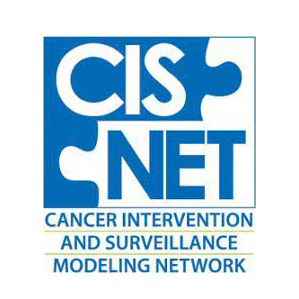Computer Models Fill Critical Knowledge Gaps To Help Reduce Cancer Disparities
Posted in News Release | Tagged cancer, cancer research, computer modeling in cancer research, health disparities, Institute for Cancer and Aging Research
Special issue of JNCI looks at how modeling can help achieve equity in cancer outcomes.
Media Contact
Karen Teber
km463@georgetown.edu
WASHINGTON (November 8, 2023) — Reducing health disparities in incidence and mortality for major types of cancers can be aided by sophisticated computer modeling efforts, according to new, wide-ranging perspectives from researchers at Georgetown University’s Lombardi Comprehensive Cancer Center and colleagues around the country. The collection of articles appears in the November 8, 2023, special issue of JNCI and are devoted to outlining a path forward in cancer disparities modeling.
The issue was edited by Georgetown Lombardi’s Jeanne Mandelblatt, MD, MPH; Amy Trentham Dietz, PhD, professor of population health sciences at the University of Wisconsin, Madison; and Rafael Meza, PhD, adjunct professor at the School of Population and Public Health at the University of British Columbia, Canada, and comprises articles by dozens of co-authors.
The studies in JNCI used modeling to synthesize data specifically for the overall U.S. population compared to the U.S. Black population to quantify the contributions of different aspects of cancer care to the impact on disparities in cancer mortality.

Given the high cost and long time periods needed to obtain results from clinical trials looking at interventions to prevent and treat many cancers and the chronic lack of sufficient enrollment of Black people in these trials, simulating cancer outcomes in diverse populations with sophisticated computer modeling tools is recommended by the National Academy of Sciences and others as a high-quality alternative assessment method. To that end, the Cancer Intervention and Surveillance Modeling Network (CISNET) has been funded by the National Cancer Institute, a part of the National Institutes of Health, since the year 2000 to advance modeling science for the disease.
The CISNET studies in this issue of JNCI considered an anti-racism framework that aims to identify strategies to advance health equity among Black people and other populations underrepresented in medical research. The authors define health equity as “the absence of unfair, avoidable or remediable differences in health outcomes so that no one is disadvantaged by socioeconomics or other factors.”

“We have framed systemic racism as the root cause of inequity that can exert significant effects on cancer incidence and mortality and competing comorbidities,” says Mandelblatt, director of the Georgetown Lombardi Institute for Cancer and Aging Research as well as a professor of oncology and medicine at the Georgetown University School of Medicine. “Because of these research efforts, we hope that we have provided a framework to support the next generation of cancer population simulation models.”
Significantly, the researchers were able to confirm that CISNET modeled incidence and mortality rates closely matched observed cancer statistical trends over time, lending validity to the modeling approach.
The racial group-specific modeling in this issue is the first collaborative effort from virtually the entire CISNET Consortium addressing a single research question designed to identify leverage points that could be targeted to increase equity in cancer burden among Black populations. The resulting body of research illustrates how population simulation modeling can be applied to address critical public health issues.
Taken together, the results of the modeling analyses included several notable patterns:
- In cancers with widely used screening procedures but persistently large gaps in racial incidence, better access to screening by racial minorities could play a larger role in helping reduce those disparities.
- High-quality therapies (those in accordance with treatment recommendations from professional organizations with treatment guidelines, delivered promptly after diagnosis, with all planned cycles completed and no or minimal dose reductions) could have a very positive impact on mortality disparities between Black people compared to the overall population, especially as new and more effective therapeutic options evolve.
The researchers hope that future models can better capture relationships between systemic racism and cancer outcomes and replace or extend single-level race variables with measures that capture structural, interpersonal, and internalized racism.
Mandelblatt reports having no personal financial interests related to these perspectives.
Research referenced in the perspectives was supported by National Cancer Institute grants U01 CA253911, U01 CA253858, R351CA 97289, R35CA283926, U01 CA199218 and P30CA014520 and a National Institute on Aging grant R21AG075008.
